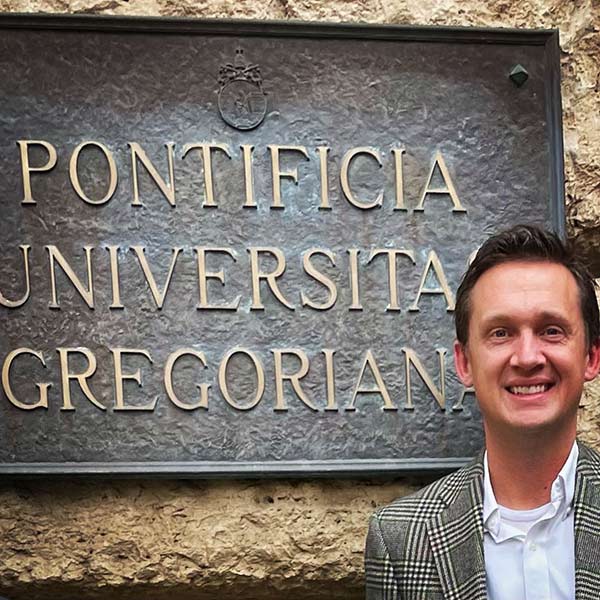Prof. Gives the Vatican a Lesson in African History, Politics and Spirituality
Regis Associate Prof. Ethan Sanders, Ph.D., calls Julius Nyerere “the most important African that most Americans have never heard of.”
But thanks to Sanders, hundreds of people in Rome, and thousands more beyond, now know quite a bit about a founder and the first president of Tanzania, a man whose political leadership Sanders said was not only influenced by his Catholic faith but, who, in turn, influenced Catholic leaders and even Popes.
Sanders, a Denver native who has taught courses on Africa and the Middle East at Regis for 10 years, was an invited keynote speaker at a symposium called “Julius Nyerere: A Politician with Soul,” last November at the Pontifical Gregorian University in Rome.
The symposium examined how faith informed Nyerere’s leadership. Born in1922 in Tanganyika, Nyerere became Catholic at age 20. He was a leader in uniting Tanganyika and Zanzibar to form Tanzania, and became the new country’s first president in 1964. He is remembered, too, as a tireless proponent of ujamaa, a Swahili word that roughly means “familyhood” and emphasizes social justice, equality, mutual respect and putting the common good ahead of self. Nyerere lived that philosophy as Tanzania’s president in part by becoming one of only a handful of African leaders to surrender power voluntarily.
Nyerere, who died in 1999, has been designated a Servant of God by the Catholic Church, the first step in the process toward sainthood, and a case is being assembled for his beatification.
At the symposium, Sanders said he couldn’t resist shaking things up a bit. “I decided to be somewhat provocative and talked about how he influenced the thinking of a number of recent Popes.”
The Gregorian Pontifical University, founded by Saint Ignatius in 1551, is Rome’s oldest Catholic University, and a veritable training school for future Popes. The Greg, as it’s known, has educated 16 Pontiffs, and boasts of being the alma mater of 900 bishops and one-third of the members of the current College of Cardinals.
The majority of students at the Greg go on to diocesan service. Yet, while more than 15 percent of current students come from African countries, Sanders said no African-focused courses are offered.
In Rome, Sanders got to collect knowledge as well as dispense it. He lodged at the Jesuit world headquarters, attended Mass led by Pope Francis in St. Peter’s Basilica, passed through doors guarded by the Swiss Guard on his way to combing through historical archives. And, he said, “The head of the Jesuit Archives ... took me into the vault where I got to see the hand-written manuscript of St. Ignatius’ Spiritual Exercises – the foundational book of the Jesuit order.”
Sanders prowled those hallowed halls because he combined purposes on the trip. In addition to edifying others about Nyerere, he continued his own research on the man he acknowledges he hadn’t heard of, either, until he was in graduate school. That discovery led him to earn a second master’s degree, and then a Ph.D., at the University of Cambridge. Now Sanders is about to begin a relationship with another storied British institution: Oxford University Press has asked him to contribute a chapter on Nyerere, whom he calls Africa’s philosopher king, to a volume on eminent historic figures and faith.
